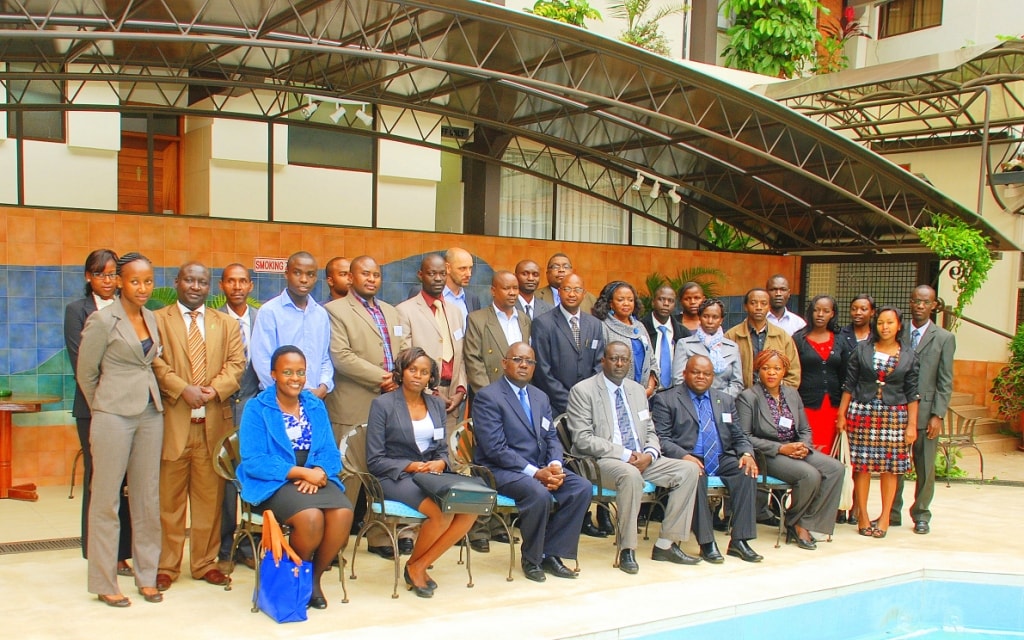NATIONAL WORKSHOP ON THE CURRENT STATUS OF CHARCOAL RULES AND REGULATIONS IN KENYA
By Milton Ogada on 28th July 2014 | News 0 0
Green Africa Foundation together with a host of key stakeholders held a one day national workshop to assess the current status of Charcoal Rules and Regulations in Kenya. The workshop which was held on 23rd July 2014 at the Silver Springs Hotel also aimed to see how effective the Charcoal Rules and Regulations are in promoting sustainable charcoal production in the country.
The Chief Guest at the Workshop, Principal Secretary, Ministry of Environment, Water and Natural Resources, Dr. Richard Lesiyampe while giving his keynote address stated that the charcoal industry is a source of employment and livelihood to many, employing approximately 200, 000 people directly and another 700,000 people indirectly with its demand continuing to increase with the increase in the human population. He pointed out that current national demand stands at 40 million cubic meters annually, of which 30 million cubic meters is supplied from sustainable sources, while 10 million cubic meters is from the unsustainable sources which is a very worrying situation. The PS further said that this worrying situation led to the enactment of the Forest Act 2005 which came into operation in 2007 leading to the Forest (Charcoal) Rules 2009 being gazetted which as a ministry in collaboration with other stakeholders have to a great extent managed to implement it. In view of the status of the situation in the Charcoal industry the PS directed that a committee be established to oversee and spearhead the process that shall help bridge existing gaps in the Charcoal Rules and Regulations of 2009 which are vital in promoting sustainable charcoal production in the country.
Through this forum, stakeholders sought to review the Proposed Amendments and formulate steps on the key action areas. Among the key issues that arose from the workshop include the fact that these rules and regulations still remain in paper, because a larger section of the society is not aware of their existence thus not observed in most of the key areas where charcoal production is done. The team also noted that some amendments are needed in light of some of the environmental and governance changes that have taken place over the past years. Charcoal Produces Associations (CPA) representative’s points out that they face numerous challenges in their efforts to maintain sustainable production of charcoal. Lack of standardization in regard to technology and charcoal quality and quantity is also a key issue of concern. Issues to do with cost, process of conducting Environmental Impact Assessment a requirement set by NEMA; Public sensitization on the use of energy saving jikos to reduce wastage of energy when using charcoal; need to promote the use of alternative energy technologies such as biomass to avoid overreliance on charcoal energy among others were also raised.
The workshop was attended by high ranking government officials, the stakeholders in the private sector, research organizations, representatives of charcoal productions associations, community based organizations, and members of the public.
